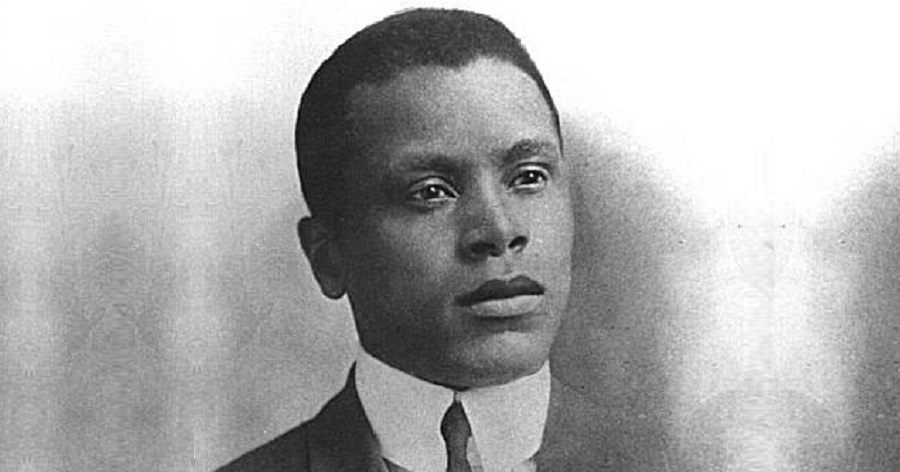Monday Medicine: Heroes
By Michael Delaney
15 June 2020
Michael Delaney returns to the Monday Medicine blog this week to sing the praises of a hero too often unsung: Oscar Micheaux.

Oscar Micheaux
If someone was to ask you who the Producers Guild of America once described as “the most prolific independent black filmmaker in American cinema”, would you know the answer? Probably not, right? And yet, there was a man who wrote, produced and directed over forty feature length films between 1919 and 1948. His name was Oscar Micheaux. He called himself “the Great and Only”. Biographer Patrick McGilligan calls him “the Jackie Robinson of American film”. To others, he was “the Czar of Black Hollywood”.
Micheaux was born on 2 January 1884 in Illinois to former slaves Calvin and Bell. He was the fifth of eleven children. His name was originally spelled Michaux – it is believed Oscar himself added the “e” although the reason for why remains unclear – and over the years his surname was bastardised in various public records and reports as anything from Mishew to Mitcheaux and even Maschaur.
Despite dropping out of high school early, Micheaux carried with him a deep-rooted appreciation of education and diligence. His father, described by Patrick McGilligan as “a paragon of hard work”, would often be found working long hours harvesting, gardening and clearing trees. Micheaux’s mother instilled in him her love of books and Booker T. Washington, who Oscar could quote extensively well into his later years. From a young age Micheaux grafted, taking on various jobs that included shoe shiner, railway porter and homesteader.
It was during his time as a homesteader in South Dakota that Micheaux began to write. His books reflected his experiences, with his protagonist “Oscar Devereaux” acting as a stand-in for himself and his pioneer lifestyle. The hard-working Micheaux even went as far as to publish and market his first book himself. He travelled door-to-door throughout South Dakota, selling copies to anyone who wanted to buy them. Micheaux said of this endeavour: “I want to see the Negro pictured in books just like he lives. But, if you write that way, the white book publishers won't publish your scripts, so I formed my own book publishing firm and write my own books, and Negroes like them.”
Soon one of Micheaux’s books attracted the attention of the Lincoln Motion Picture Co., who catered to a black audience hitherto ignored by film studios. The entrepreneurial Micheaux decided, however, that just like his books, he would make his films himself.
Now sadly lost, Micheaux’s silent adaptation of his own work – renamed The Homesteader - made him the first African-American to make his own film. Starring the pioneering black actress Evelyn Preer, The Homesteader told the story of a black man whose love for a white woman is forbidden by law and, as a result, leads him to marry the daughter of a black preacher.
The Homesteader’s premiere was a lavish affair, indicative of Micheaux’s reputation as a salesman. Around 8,000 people packed themselves into a Chicago theatre and were greeted with opera singers and jazz musicians. The film received rave reviews. Half-century magazine wrote: “Many scenes rank in power and workmanship with the greatest of white western productions."
Yet not everything was rosy for Micheaux. His former father-in-law – a black preacher - took exception to some of the “inspired” elements of the film and sought to have it banned. The film also faced censorship from authorities because of a brief mention of abortion. These problems, alongside the low box office the film made due to the lower prices paid by black cinema-goers, made Micheaux’s venture difficult.
He was not to be deterred. Micheaux followed The Homesteader with Within Our Gates, an audacious study of race, bigotry, love, murder and “the New Negro”. Originally thought to be lost only to be rediscovered in Spain in the 1970s, historian W. Fitzhugh Brundage described Within Our Gates as “one of the earliest examples, and certainly the most ambitious extant example, of black appropriation of the emerging technology to contest representations of African Americans in mass culture”. The film features The Homesteader’s Evelyn Preer as a school campaigner attempting to raise money to educate poor black children, only to face white oppression.
Within Our Gates is often billed as an “answer” to D.W. Griffith’s The Birth of a Nation. Whereas Griffith portrays black men in a stereotypically racist fashion as uncivilised rapists, Micheaux shines a light on white barbarism, showing how seemingly respectable white men were willing to rape and lynch in acts of what Brundage calls “indefensible savagery against innocent and estimable citizens”. Within Our Gates was banned in the South, was stalled for two months by Chicago’s Board of Censors before finally earning approval and was screened in different cuts and variations as local circumstances demanded.
As his film career progressed, Micheaux continued to break boundaries. He introduced audiences to Paul Robeson with his film Body and Soul. In 1931 he produced the first full-length sound film with a black cast, with The Exile. In 1948, his film Betrayal became the first African-American produced film to open in white theatres.
Micheaux died in 1951 and, to this day, fails to receive the recognition he deserves. Whilst the likes of Griffith are recognised and studied, one of cinema’s greats remains largely unknown, even amongst the most dedicated cineastes. Historian Jeff Hinkelman has said that Micheaux and his work is of “incalculable significance”. Micheaux has been called many things. He has been called significant. A grafter. The most prolific black filmmaker in American cinema. Audacious. “Muhammed Ali decades before his time". However, Micheaux is probably best described by the words written on his headstone in Kansas: Oscar Micheaux, A Man Ahead of His Time.
Sources:
Patrick McGilligan. The Great and Only: The Life of America's First Black Filmmaker. Harper Collins. 2008.
https://www.naacp.org/naacp-history-oscar-micheaux/
https://www.youtube.com/watch?v=gtwrCto9az0&feature=youtu.be




